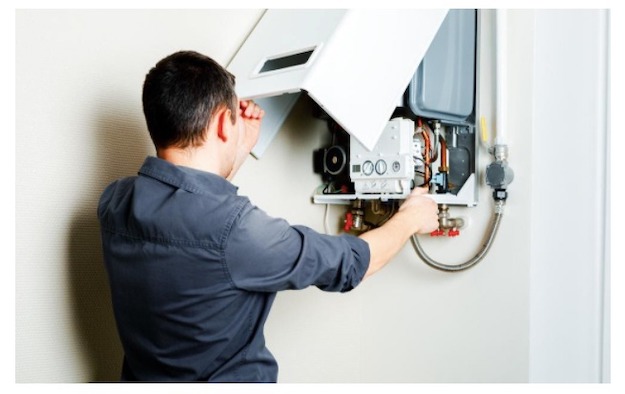It’s easy to take a water heater casually until you don’t have it at all. Fortunately, it is rare for a hot water heater to fail on you without notice. This is the reason why it is vital that you not dismiss the warning signals of a malfunctioning water heater. If you understand how to identify the warning signs that the water heater is about to fail, you can avoid the damage and high cost of repairs.
It’s a good idea to familiarize yourself with the components of your hot water heater. This will allow you to judge the water heater perfectly. First of all, there are Protective linings that surround a storage tank in classic water heaters. The burners for heating the water are contained in a pipe in the middle. It’s possible to configure them in a variety of ways depending on whether they’re powered by electricity or by gas. Corrosive particles are drawn to an anode rod, which extends its lifespan.
The average lifespan of a hot water heater is ten to fifteen years. The average lifespan of a hot water heater is ten to fifteen years. A water heater might fail for a variety of reasons. Over time, anode rods are depleted and must be replaced. Metal tanks can rust or leak. Heating elements stop operating or break down. Occasionally, a component can be swapped out for a new one. It’s better to replace the entire unit if your water heater has a habit of failing, especially if it’s been more than ten years.
1. Leakage
Unusual leaks are a preliminary sign that your water heater unit is about to fail. If there are no apparent reasons or accidents and there is a leak it is a warning sign that your water heater has a problem.
However, if you see a leak there are definitely some reasons behind it. Such are the connections are loose or the valves are not fully closed. Replacing it simply gets rid of most of the problem. It is recommended to replace your valve every 2-3 years to preserve the lifespan of your water heaters. Try to check for leaks in pipes or valves, every once in a while. If the problem still exists after the repairs it is better to replace the water heater. Some plumbing companies offer very good deals for replacement.
Don’t Miss-
What to Consider When Purchasing the Right Ultrasonic Humidifier
2. Temperature
The water heater is supposed to make your water hot at a regular time. If the temperature is inconsistent as if the water is not hot enough even after running your water heater for the usual time you might have a problem with the heater.
If lucks with you it may be just a mishap in a temperature dial. The recommended temperature for the water heater is 120 degrees Fahrenheit at minimum. There could be a simple problem with the thermostat as well. By replacing the thermostat you can resolve the problem.
But if your heating element is broken you have a very big problem on your hand. Old water heaters are just not worth it. Replace them and buy a new model for a maximum value of money.
3. Discoloration
If your hot water is discolored this means that there is a mineral accumulation in the water heater. These minerals are often calcium and magnesium-based. There are two options for this. You can either use a water softener beforehand or after the discoloration starts try flushing your water heater unit and clean the sediments thoroughly.
Discoloration can also happen due to corrosion. Every water heater has a thin coating of corrosion-preventing chemicals but that does not last forever. Once it starts wearing off corrosion forms making your water extremely dangerous for use. If there is corrosion please you can try to replace the anode rod or replace the unit completely.
4. Weird Noises
If there are weird noises coming out of your water heaters this could also mean mineral buildup in the heating element. The mineral makes the crackling, sizzling or whistling sounds in the water heaters. Similar to the discoloration you can try to flush your tank
These sounds can also mean that your heating element is breaking. If the cause is sediments just flush the unit and call it a day and for problems in the heating elements it is best to replace the water heater.
As we can see for certain cases it is better to replace the water heater, for other cases it is better to repair them. If you are looking for water heater installation, you can call experienced plumbing and restoration guys for a thorough check-up and installation.

